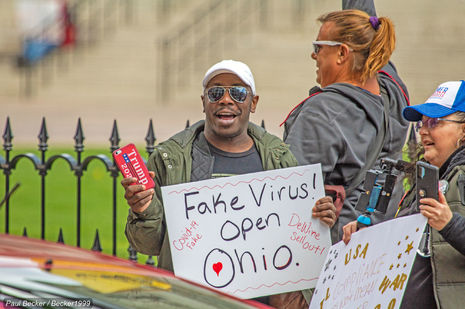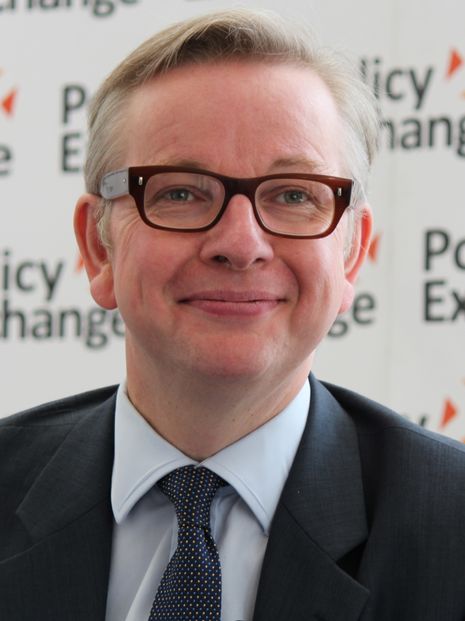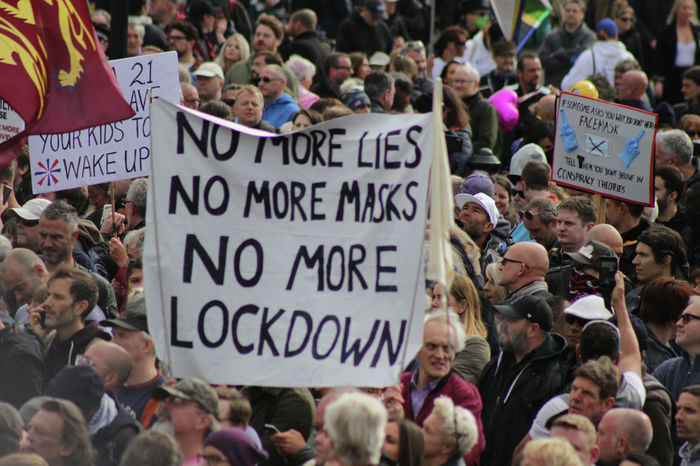Lies cost lives
Jack Bailey explores the harmful consequences of conspiracy theories, arguing that fake news and lies have fuelled the fires of hatred and division.

Recently, the sad death of Gary Matthews – a Covid-19 denier – a week after developing symptoms, has drawn attention to the apparent ubiquity of lies, misinformation and conspiracy theories, not only concerning the pandemic, but in today’s society in general. It has led people to question the real impact that these lies have – do they cost lives? Frankly, they do, and the proliferation of these “alternative facts” poses an ever-increasing risk to life.
It is often said that we live in a post-truth society, one in which fake news has taken over from from real news. An MIT study shows that fake news spreads at least six times faster, lasts longer, and penetrates deeper. The stratospheric rise of misinformation has meant that conspiracy theorists, who previously would have been derided and laughed away, have now been given an air of legitimacy and a means of spreading their vitriol.
Therefore, it should come as no surprise that controversial “free thinkers” such as David Icke and Piers Corbyn have seen a larger-than-usual level of attention in the media. Attempts to shut these artifices down or fact-check the perfidious claims behind them are labelled totalitarian, attracting the attention of populist tub-thumpers like Toby Young and his Free Speech Union. We have seen this only recently with Donald Trump when Twitter fact checked his mendacious tweets about election fraud – claims that were rejected in court on the basis of inadequate evidence – and was subsequently met with a wave of negative responses. These tweets went on to play a large part in the violent insurrection we saw in the Capitol. This is the damage that fabricated conspiracy theories can cause.
“Fake news and lies legitimise such actions and fuel the fires of hatred and division.”
Fake news and lies legitimise such actions and fuel the fires of hatred and division. The recurring Trumpian reclassification of evidence-backed criticism as “fake news” did a fantastic job of dividing people and sowing mistrust in the evidence produced by experts.
Our own press in the UK also have a lot to answer for, particularly publications such as the Daily Mail, The Sun and the Daily Express. Continual claims – and platforming of such claims – that COVID is exaggerated, or even an outright hoax, instil an enduring suspicion in a large number of their readers. The toothlessness of IPSO, the UK press regulator, must also take some of the blame too; as a Hacked Off report shows, they have been extremely hands-off in dealing with these inaccuracies. This all plays into the legitimising of Covid-19 conspiracy theories.
“We have now reached a point where the expert, scientific view of an immunologist ... can seemingly be usurped by laypeople on the internet.”
There can be no ignoring that these theories often play into existing, harmful tropes, many of them antisemitic, based on notions of a “New World Order”. Then, there is the irrational fearmongering around Covid-19 vaccines and NHS Test and Trace, an irony clearly lost on Covid-19 sceptics when sharing such conspiracies on social media from their devices on WiFi or 4G (or, God forbid, 5G!). We have now reached a point where the expert, scientific view of an immunologist, epidemiologist or virologist – backed by years of study and empirical research – can seemingly be usurped by laypeople on the internet. Of course, the public are entitled to reasonable scepticism and to question what they are told, but this should be on the basis of facts and reasonable alternatives, rather than spurious and, at times, borderline slanderous misinformation. The product of this is an increased level of distrust in the scientists and experts that are contending not only with a government that does not seem to want to listen, but also an increasing resistance from sections of the public that go beyond rational scepticism.

As for the status of experts and apparent disregard for what they have to say, this is a long antecedent issue not confined to the recent context of Covid-19. In the run up to Brexit, Michael Gove put it best, saying: ”I think the people of this country have had enough of experts.” Claims of “breaking point” and “£350m a week” are hard to ignore. Deception, dishonesty, and disinformation: this has long been a political tactic. Who can forget the rebranding of CCHQ’s Twitter account as ”factcheckUK“? Or recent Conservative party newsletters in Wellingborough that told activists “there are lessons that we can learn from Trump.” Activists were encouraged to “weaponise fake news” and that “sometimes, it is better to give the WRONG answer at the RIGHT time, than the RIGHT answer at the WRONG time”? Elections and referenda have been won on the basis of lies and the diminution of what experts have to say – a damaging precedent to set in a democracy. When the very people who have built political careers by naysaying the evidence-backed (some may say factual) opinions of experts find themselves in positions of leadership, it is hardly surprising that the trust that once invested in experts has corroded greatly.
This tactic has come back to bite the government. Now, rather than ignore, we are being implored to listen to the panoply of expert voices about Covid-19. But it’s too late for that, that ship has long since sailed. We have become a post-truth, conspiracy-driven, expert-sceptic society that constantly feels as though somebody is exposing us for something and that nothing comes without a catch. This distrust is pervasive. As for whether the government has tried to combat the issue, more than fuel the fire, they have collected the sticks, sourced the kindling, started the fire, and then poured petrol on top of it. They have made their bed and are now having to lie in it.
 News / Cambridge academics stand out in King’s 2026 Honours List2 January 2026
News / Cambridge academics stand out in King’s 2026 Honours List2 January 2026 Interviews / You don’t need to peak at Cambridge, says Robin Harding31 December 2025
Interviews / You don’t need to peak at Cambridge, says Robin Harding31 December 2025 Comment / What happened to men at Cambridge?31 December 2025
Comment / What happened to men at Cambridge?31 December 2025 Features / “It’s a momentary expression of rage”: reforming democracy from Cambridge4 January 2026
Features / “It’s a momentary expression of rage”: reforming democracy from Cambridge4 January 2026 News / AstraZeneca sues for £32 million over faulty construction at Cambridge Campus31 December 2025
News / AstraZeneca sues for £32 million over faulty construction at Cambridge Campus31 December 2025










